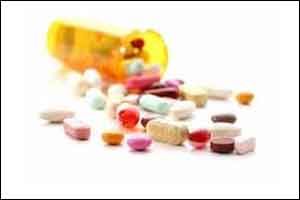- Home
- Editorial
- News
- Practice Guidelines
- Anesthesiology Guidelines
- Cancer Guidelines
- Cardiac Sciences Guidelines
- Critical Care Guidelines
- Dentistry Guidelines
- Dermatology Guidelines
- Diabetes and Endo Guidelines
- Diagnostics Guidelines
- ENT Guidelines
- Featured Practice Guidelines
- Gastroenterology Guidelines
- Geriatrics Guidelines
- Medicine Guidelines
- Nephrology Guidelines
- Neurosciences Guidelines
- Obs and Gynae Guidelines
- Ophthalmology Guidelines
- Orthopaedics Guidelines
- Paediatrics Guidelines
- Psychiatry Guidelines
- Pulmonology Guidelines
- Radiology Guidelines
- Surgery Guidelines
- Urology Guidelines
No magic pill to cure alcohol dependence yet

A new study published by the scientific journal Addiction has found no reliable evidence for using nalmefene, naltrexone, acamprosate, baclofen or topiramate to control drinking in patients with alcohol dependence or alcohol use disorder. At best, some treatments showed low to medium efficacy in reducing drinking, but those findings were from studies with a high risk of bias. None demonstrated any benefit on health outcomes.
The study pooled the results from 32 double-blind randomised controlled trials representing 6,036 patients, published between 1994 and 2015. The studies compared the effects of oral nalmefene (n=9), naltrexone (n=14), acamprosate (n=1), baclofen (n=4) and topimarate (n=4) against placebo.
Many of the studies provided unreliable results due to risk of bias (potential exaggeration of the effects of the drug). Twenty-six studies (81%) showed an unclear or high risk of incomplete outcome data due to the large number of withdrawals. Seventeen studies (53%) showed an unclear or a high risk of selective outcome reporting, as they did not include a protocol registration number, which would allow another researcher to check whether all outcomes were reported.
Lead author Dr Palpacuer states: "Although our report is based on all available data in the public domain, we did not find clear evidence of benefit of using these drugs to control drinking. That doesn't mean the drugs aren't effective; it means we don't yet know if they are effective. To know that, we need better studies. Researchers urgently need to provide policymakers with evidence as to which of these drugs can be effectively translated into a real harm reduction strategy."
For more details click on the link : http://dx.doi.org/10.1111/add.13974

Disclaimer: This site is primarily intended for healthcare professionals. Any content/information on this website does not replace the advice of medical and/or health professionals and should not be construed as medical/diagnostic advice/endorsement or prescription. Use of this site is subject to our terms of use, privacy policy, advertisement policy. © 2020 Minerva Medical Treatment Pvt Ltd